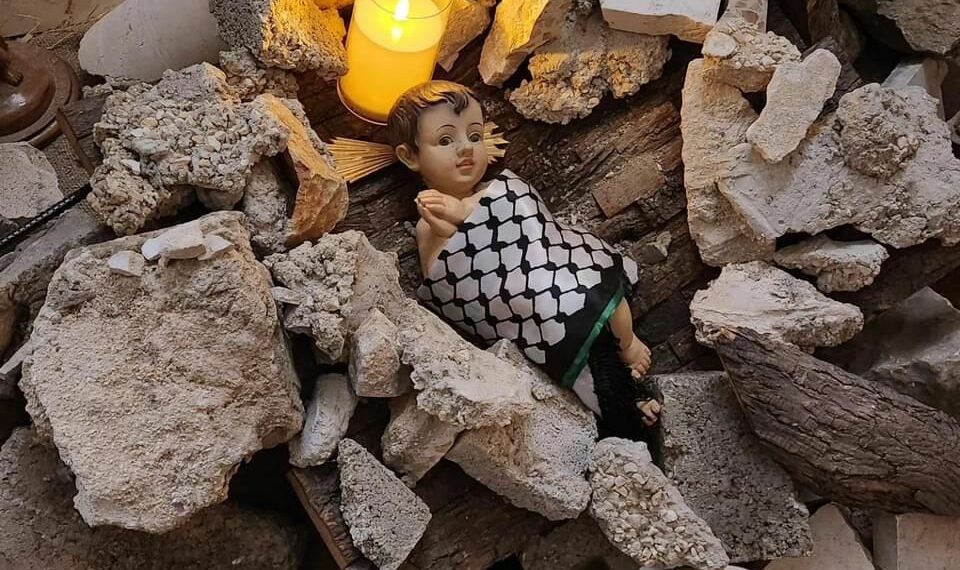Bethlehem, traditionally a beacon of joy and celebration during Christmastime, now bears witness to a sombre and politically charged atmosphere.
As the eve of Christmas unfolds, the city is draped in sadness, with a touch of darkness that mirrors the ongoing conflicts in the region.
The grand procession of Boy Scouts accompanying the Latin Patriarch into Bethlehem, a customary sight with 28 troops and blasting bagpipes, has been reduced to a single silent troop. Holding aloft Bible verses on peace and poignant photographs of Gazan children, they navigate through the city’s streets, echoing a message of both hope amidst despair.
Christian leaders in Bethlehem, while condemning the surprise Hamas attack on Israeli communities in October, are primarily focused on the aftermath of the conflict.
The toll on Gaza is devastating, with the Israel Defence Forces reportedly claiming the lives of more than 20,000 people.
International aid groups are raising alarms about an unfolding humanitarian catastrophe, with shortages in water, food, and shelter exacerbating the crisis.
While the Holy Land is predominantly home to Jews and Muslims, Bethlehem is home to a small Christian population, comprising 2% of the Palestinian population in the West Bank.
These Christians, tracing their roots back centuries, are facing a unique set of challenges in the current political climate.
Bethlehem Mayor Hanna Hanania, in his annual Christmas message, openly condemns Israel’s prosecution of the war in Gaza as “ethnic cleansing” and “genocide”.
Similar sentiments are echoed by the head of the chamber of commerce, Samir Hazboun, expressing disappointment in the perceived moral failure of the West to intervene and protect civilians.
Amidst the ruins and rubble of conflict, the Rev. Munther Isaac, pastor of the Evangelical Lutheran Christmas Church, places the Nativity scene.
The juxtaposition of the baby Jesus amid flickering candles on a pile of broken cement and dirty stone speaks volumes about the harsh reality faced by the people of Palestine.
Photos of this poignant installation have gone viral, highlighting the harsh reality that Christmas in Palestine holds this year.
In his reflections, Rev. Isaac draws parallels between the Christmas story and the current situation.
Drawing from the Gospel of Matthew, he highlights the parallels of Jesus being born into hardship, living under occupation, surviving a massacre, and becoming a refugee—a narrative that resonates deeply with the Palestinian experience.
Bethlehem, typically bustling with pilgrims and tourists during this festive season, now stands eerily quiet.
The Church of the Nativity, painstakingly renovated, sees almost no visitors, and the number of foreign visitors has dwindled drastically.
The once-thriving tourism industry in Bethlehem has taken a severe hit, with only 624 foreign visitors recorded in the entire month of November.
Despite the cancellation of festive celebrations, there is a determination among the clergy to uphold the essence of Christmas.
Rami Asakrieh, a Franciscan friar, acknowledges the cancelation of festivities but emphasises that Mass will be held.
The decision to forgo celebrations is portrayed as a sign of solidarity with the victims of the war.
In a joint letter to President Biden and Congress, clerics from Bethlehem appeal for justice, support for the suffering, and a plea for peace.
Asakrieh underscores the need for the Christmas message more than ever, calling for peace, love, and light in the midst of ongoing turmoil.
As Bethlehem weathers this silent night, the echoes of hope and resilience in the face of adversity resonate, embodying the true spirit of Christmas in a city overshadowed by conflict.















